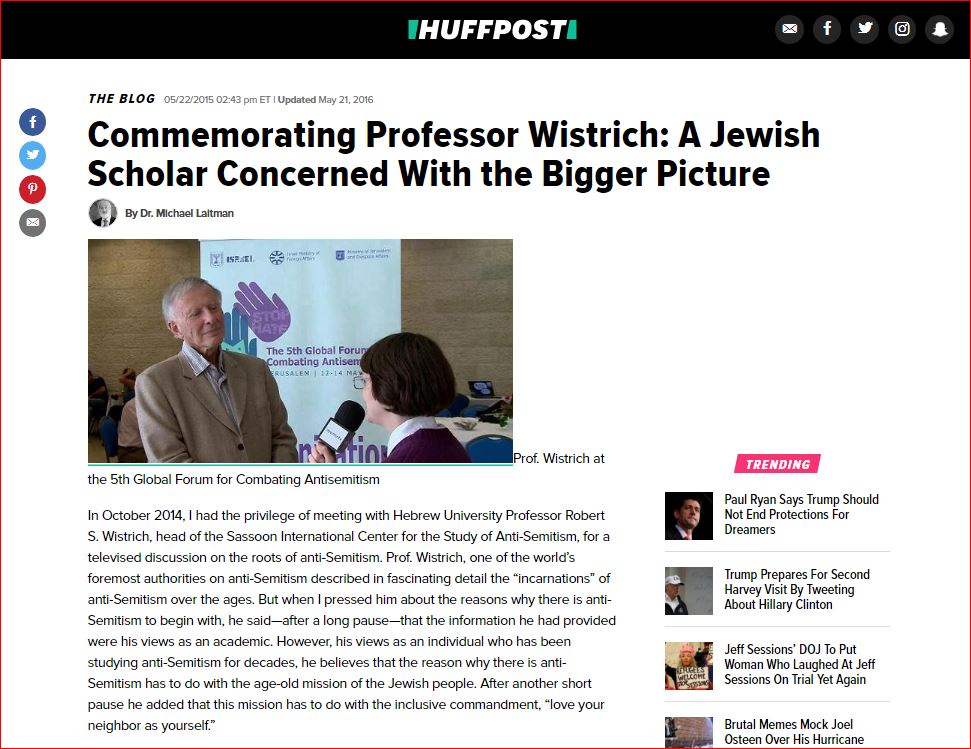
In October 2014, I had the privilege of meeting with Hebrew University Professor Robert S. Wistrich, head of the Sassoon International Center for the Study of Anti-Semitism, for a televised discussion on the roots of anti-Semitism. Prof. Wistrich, one of the world’s foremost authorities on anti-Semitism described in fascinating detail the “incarnations” of anti-Semitism over the ages. But when I pressed him about the reasons why there is anti-Semitism to begin with, he said—after a long pause—that the information he had provided were his views as an academic. However, his views as an individual who has been studying anti-Semitism for decades, he believes that the reason why there is anti-Semitism has to do with the age-old mission of the Jewish people. After another short pause he added that this mission has to do with the inclusive commandment, “love your neighbor as yourself.”
On October 29, Prof. Wistrich published in Mosaic Magazine an essay titled, “When All Is Said and Done in France…” His concluding words were
“Anti-Semitism, as so often in Jewish history, may well be the immediate trigger for change. But much more is involved than that. There is also the haunting … matter of Jewish destiny.”
Earlier in the essay, he pointed out an issue that I believe is relevant to all Jews in Western countries, and not just to French Jewry:
“I have also encountered well-placed and upwardly mobile French Jews who may acknowledge the current ‘national malaise’ but refuse to believe it will ultimately affect them, who are altogether disconnected from the hardships experienced by Jews and non-Jews alike at the street level, who basically deny that anti-Semitism even exists in France, or who think it is merely a passing trend that will disappear as soon as economic conditions improve. We have been there before, many times in Jewish history, and sadly it appears that some Jews will never learn.”
Representatives of the ARI institute, of which I am the president and founder, had a chance to meet with Prof. Wistrich at the 2015 Global Forum for Combating Antisemitism. In a conversation with a member of our delegation, he reiterated the tone and spirit of the wise words that I had heard from him before. Sadly, a few days after the conference, this luminary suffered a fatal heart attack in Rome, shortly before addressing the Italian Senate about the rise of anti-Semitism in Europe.
I believe that the best way we can commemorate this great scholar is to share the words of wisdom that he said when we met. It is not often that you meet one who has achieved fame and has become a worldwide authority on a certain topic, yet maintains dignity and integrity about what he knows and what he is still searching. It is, so I believe, a mark of true greatness.